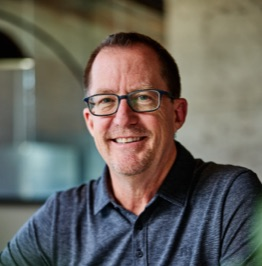
Greg Head is a software industry veteran with three CRM startups under his belt, including one IPO. He has been in the software Tech startup space for over 30 years. Greg is an advisor to 40 practical SaaS Founders all over the world. He hosts the weekly Practical Founders podcast, interviewing successful entrepreneurs who grew valuable software companies without big funding. Greg also publishes the “Greg’s list”, his curated up-to-date list of software companies in Phoenix, Dallas, Toronto, and other cities outside Silicon Valley.
Key Takeaways
(00:01-06:42) The changing landscape of CRM
(06:42-14:35) The significance of positioning
(14:35-23:54) Startups no longer need extensive VC funding
(23:54-29:31) To grow a serious company, focus is crucial
(29:31-36:49) Testing before scaling
(36:49-44:52) Beyond the traditional VC-funded model
(44:52-49:44) A savvy approach to building and growing a product
(49:44-54:55) The myth of an overnight success
📱 Apple Podcasts | 🎧 Spotify | 🔗 iHeart
The Evolution of Growth
Greg Head, a veteran in the tech startup landscape, reflects on the significant evolution of CRM, from early software like ACT to the dynamic marketing technology of today, emphasizing the rapid pace of software development and market entry. He challenges traditional branding notions, highlighting the enduring power of clear positioning – being known as the best for a specific audience. The conversation delves into the rise and historical context of product-led growth, its impact on buyer expectations and distribution, and its role alongside consultative sales for complex software. Ultimately, Greg argues that the current environment empowers startups to build and scale globally through effective positioning and product-led strategies, often reducing the necessity for extensive venture capital funding by leveraging paid and earned channels.
1. The changing landscape of CRM
Greg, now a pioneer in reshaping technology startups, shares insights from his long career and discusses the changing landscape of CRM. From his early days with ACT software to steering Infusionsoft's growth, Greg reflects on the evolving dynamics of the sales and marketing game.
The conversation explores the shifts in tactics, the impact of the internet, and the ever-changing world of marketing technology. Greg emphasizes the acceleration in software development and market entry, making venture capital less essential for startups. He also highlights the enduring aspects, such as the fundamental human psychology that remains unchanged despite technological advancements.
The tactics that work today to find potential customers, engage with them and convert them are changing pretty quickly. Unfortunately, in the marketing game, if something works, it kind of gets popular and then beaten to death. So there's very few tactics left. (Greg Head)
2. The significance of positioning
The discussion takes a deep dive into the significance of positioning as Greg challenges the notion of branding and advocates for clarity in understanding who a product is for, what it does, and how it stands out. He highlights that being known as the best at something important for a specific audience remains a timeless strategy in the positioning game.
As the conversation shifts to product-led growth, Greg and Alex explore its historical roots, citing examples like ACT software's early days. They discuss the implications of product-led growth on buyer expectations, distribution strategies, and the role of investment in both product development and distribution.
The duo touches upon the shift towards a more consultative sales approach for complex software while acknowledging the efficiency of product-led growth in mature categories. Greg sheds light on the practical founder movement, emphasizing that the ease of building and entering the market, coupled with the right positioning and product-led strategies, allows startups to thrive without excessive reliance on venture capital.
Not just go grab somebody by the collar, pull them in and try to sell to them. But to be known as the best at something important for someone specific is still a modern way to stay in the positioning game. (Greg Head)
3. Startups no longer need extensive VC funding
Greg advocates for a more nuanced approach, emphasizing that in today's landscape, startups no longer need extensive VC funding to build and scale global software companies. He outlines how product-led growth has become a valuable tactic, leveraging avenues like paid ads and SEO to efficiently convert leads into customers. The discussion also touches on the significance of earned channels, such as Greg's successful engagement on LinkedIn, as valuable long-term investments.
As the conversation unfolds, Greg provides insights into the efficient channels and tactics that practical founders can employ to reach their target audience. From vertical market approaches to strategic positioning against industry leaders, the podcast delves into alternative methods that can lead to successful market penetration without the need for excessive funding.
Furthermore, the episode explores how the agility of small startups often surpasses that of larger corporations in terms of innovation and creative marketing. Greg highlights the advantages that small companies have in crafting unique and authentic messages that resonate with their audience, positioning themselves against industry giants.
Big companies don't innovate like creative front-line edgy entrepreneurs. It's an advantage for the small companies that don't have billion-dollar quotas that they can do things creatively and differently. (Greg Head)
4. To grow a serious company, focus is crucial
The focus shifts to the predicament faced by small organizations when balancing experimentation and resource constraints. Alex brings up the tension between having a big vision and the practicality of drawing in a large audience to discover the ideal customer. In contrast to the conventional VC advice of relentless focus, Greg shares a nuanced perspective, advocating for a phased approach where experimentation is embraced until a certain stage is reached.
Greg underscores the law of nature that to grow a serious company, focus is crucial. He draws parallels with restaurants specializing in specific cuisines rather than offering an array of options. The conversation delves into the experimentation zone of startups and the twist introduced by early-stage overfunding, where founders, still in the discovery phase, are propelled down paths that may not be venture-scalable.
At focus, every restaurant owner could make any kind of food. Any chef could make any kind of food in their restaurant by the end of the week. Thai, Italian, French, ice cream, hamburgers, but they don't. The ones that scale globally, nationally, are the ones that are known for a very specific kind of food. (Greg Head)
5. Testing before scaling
The conversation opens with a vivid analogy — overfunding early-stage startups is like pumping diesel fuel into gasoline tanks — an apt metaphor for the misalignment between early-stage capital injection and the experimental nature of startups.
Greg emphasizes the importance of testing before scaling, akin to the principles of modern marketing. He argues that startups, primarily in the innovation phase, require a patient approach, highlighting the lean startup philosophy of gradually finding the right fit through experimentation. The episode challenges the conventional wisdom of rushing to scale with massive VC funding, pointing out that such a strategy frequently leads to catastrophic outcomes. A key insight emerges: the modern VC landscape has evolved, becoming more impatient and focused on rapid growth. Greg posits that the prevalent approach of substantial early-stage funding often results in founders prematurely claiming to have the answers, leading to a mismatch between expectations and the reality of the startup journey.
You just need to know what game you're playing, be open-eyed. The biases that I think most founders get is from the press. It's the TechCrunch stories, it's the venture announcement that people congratulate you on. (Greg Head)
Check the episode's Transcript (AI-generated) HERE.
Other Episodes

Godard Abel | CEO of G2
S 01 | Ep 6 Where You Go for Software: Reach Your Peak

Dean Stocker | CEO of Alteryx
S 01 | Ep 8 Turning Your Customers Into Your Biggest Champions

Peter Fader | Co-Founder of Theta CLV
S 01 | Ep 10 Turning Your Marketing Into Dollars